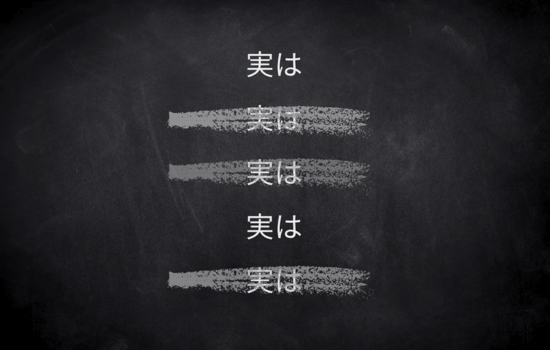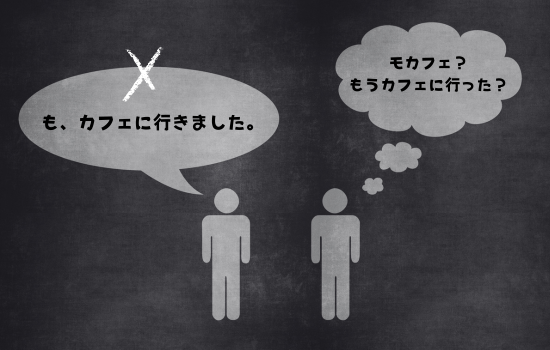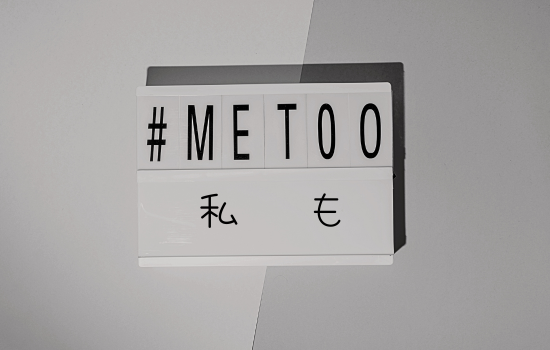In Japanese, the phrases 〜(だ)から and 〜んだから are often used to express reasons or causes, but they carry different nuances and levels of emphasis. Knowing when and how to use these forms can help you convey your thoughts more effectively in various situations, whether in casual conversation or more formal contexts. In this article, we’ll explore the distinctions between these two expressions, providing examples to illustrate their proper usage.
〜(だ)から: Expressing Simple Reasons
Description:
The phrase 〜(だ)から is used to provide a straightforward reason or cause. It is versatile and can be used in both casual and semi-formal settings. However, in very formal contexts, the more polite form 〜ですから is preferred.
- e.g.
- 家で仕事してるから、家事もできる。(いえでしごとしてるから、かじもできる。) — “Since I work from home, I can also do housework.”
- 疲れてるから、ちょっと休ませて。(つかれてるから、ちょっとやすませて。) — “I’m tired, so let me rest a bit.”
- 君はこんなに勉強を頑張っているから、いつもテストで一番をとれるんだね。(きみはこんなにべんきょうをがんばっているから、いつもテストでいちばんをとれるんだね。) — “Because you’re studying so hard, you always get the top score on the test.”
- 彼女とは友達だから、彼女のことはよく知ってるよ。(かのじょとはともだちだから、かのじょのことはよくしってるよ。) — “Since she’s my friend, I know her well.”
- パーティーのために作ったから、後でみんなで食べようね。 (パーティーのためにつくったから、あとでみんなでたべようね。) — “I made it for the party, so let’s eat it together later.”
- 家で仕事してるから、家事もできる。(いえでしごとしてるから、かじもできる。) — “Since I work from home, I can also do housework.”
〜んだから: Emphasizing the Reason
Description:
The phrase 〜んだから, which derives from 〜のだから, adds an extra layer of emphasis to the reason being given. It’s often used to justify an action or persuade someone, and is common in spoken Japanese. However, it’s less formal and more assertive, and 〜のだから is mainly for writing.
- e.g.
- 家で仕事してるんだから、皿洗いぐらいしてよ。(いえでしごとしてるんだから、さらあらいぐらいしてよ。) — “Since you work from home, you could at least wash the dishes.” *speaker is fed up.
- 疲れてるんだから、休ませてくれよ。(つかれてるんだから、やすませてくれよ。) — “I’m tired, so let me rest.” *speaker is annoyed.
- 君はこんなに勉強を頑張ってるんだから、必ず合格するよ。(きみはこんなにべんきょうをがんばってるんだから、かならずごうかくするよ。) — “Since you’re working so hard on your studies, you’ll definitely pass.”
- 私たち友達なんだから、なんでも相談してね。(わたしたちともだちなんだから、なんでもそうだんしてね。) — “We’re friends, so feel free to talk to me about anything.”
- パーティーのために作ったんだから、食べちゃダメだよ。 (パーティーのためにつくったんだから、たべちゃダメだよ。) — “I made it for the party, so don’t eat it (now).”
- 家で仕事してるんだから、皿洗いぐらいしてよ。(いえでしごとしてるんだから、さらあらいぐらいしてよ。) — “Since you work from home, you could at least wash the dishes.” *speaker is fed up.
〜ですから: Formal Expression of Reasons
Description:
The phrase 〜ですから is the polite or formal version of 〜だから. It’s used in situations where a more respectful tone is required, such as in business, formal writing, or when speaking to superiors or those you don’t know well. For noun-based sentences, the structure becomes noun + ですから.
- e.g.
- 熱があるので、会議には参加できません。(ねつがあるので、かいぎにはさんかできません。) — “Since I have a fever, I can’t attend the meeting.”
Explanation: Here, 〜ので is used as a formal alternative to 〜から, which is suitable for written or polite spoken language. - 今日は台風ですから、外出しないほうがいいですね。(きょうはたいふうですから、がいしゅつしないほうがいいですね。) — “Since there’s a typhoon today, it’s better not to go out.”
Explanation: The noun 台風 (たいふう) is followed by ですから to give a polite reason.
- 熱があるので、会議には参加できません。(ねつがあるので、かいぎにはさんかできません。) — “Since I have a fever, I can’t attend the meeting.”
〜んですから: Formal Emphasis
Description:
The phrase 〜んですから, which derives from 〜のですから, is the formal version of 〜んだから. It maintains the same nuance of emphasis and persuasion but is used in more polite situations. It’s important to note that 〜んですから is correct, while 〜んますから is grammatically incorrect. For nouns, the structure is noun + なんですから.
- e.g.
- 熱があるんですから、会議に参加しなくても良いですよ。(ねつがあるんですから、かいぎにさんかしなくてもいいですよ。) — “Since you have a fever, you don’t have to attend the meeting.”
Explanation: 〜んですから adds emphasis, highlighting that the listener should understand or act accordingly based on the reason given. - 今日は台風なんですから、外出しないほうがいいですよ。(きょうはたいふうなんですから、がいしゅつしないほうがいいですよ。) — “Since there’s a typhoon today, it’s better not to go out.”
Explanation: The noun 台風 (たいふう) is followed by なんですから, emphasizing the seriousness of the reason.
- 熱があるんですから、会議に参加しなくても良いですよ。(ねつがあるんですから、かいぎにさんかしなくてもいいですよ。) — “Since you have a fever, you don’t have to attend the meeting.”
Common Mistake : Incorrect Usage
- Incorrect Sentence:
- 今日は天気が良いんですから出かけます。(きょうはてんきがいいんですからでかけます。)
This sentence is incorrect because the 〜んですから construction creates a strong emphasis on the reason, but the verb 出かけます (でかけます) immediately following it weakens this emphasis, making the sentence feel unnatural.
- 今日は天気が良いんですから出かけます。(きょうはてんきがいいんですからでかけます。)
- Corrected Sentence:
- 今日は天気が良いですから、出かけます。(きょうはてんきがいいですから、でかけます。) — “Since the weather is nice today, I will go out.”
This version uses 〜ですから, which provides a smoother, more natural transition to the action of 出かけます.
- 今日は天気が良いですから、出かけます。(きょうはてんきがいいですから、でかけます。) — “Since the weather is nice today, I will go out.”
- Incorrect Sentence:
- 彼女は美人なんですから、好きです。(かのじょはびじんなんですから、すきです。)
This sentence is incorrect for similar reasons. The 〜んですから structure emphasizes the reason (彼女は美人), but following it directly with 好きです (すきです) feels abrupt and unnatural, as the sentence implies an expectation that the listener should agree with the speaker’s feelings based on the reason given.
- 彼女は美人なんですから、好きです。(かのじょはびじんなんですから、すきです。)
- Corrected Sentence:
- 彼女は美人ですから、好きです。(かのじょはびじんですから、すきです。) — “I like her because she is beautiful.”
This version uses 〜ですから, which maintains a natural flow and tone without the forced emphasis.
- 彼女は美人ですから、好きです。(かのじょはびじんですから、すきです。) — “I like her because she is beautiful.”
In these examples, the incorrect usage of 〜んですから causes an imbalance in the sentence’s tone and disrupts the natural communication of the reason and action. By using 〜ですから instead, the sentences maintain a smoother and more natural flow, appropriate for both spoken and written Japanese.
However, in other cases, using 〜だから instead of 〜んだから can lead to sentences that lack the intended emphasis or nuance, resulting in a less effective or unnatural expression.
- Incorrect Sentence:
- いつも言っているから、ちゃんとやってください!(いつもいっているから、ちゃんとやってください!)
This sentence is incorrect because using 〜だから lacks the emphasis needed to convey the speaker’s frustration or insistence. The speaker wants to stress that they have mentioned this many times, and the listener should take action based on that.
- いつも言っているから、ちゃんとやってください!(いつもいっているから、ちゃんとやってください!)
- Corrected Sentence:
- いつも言っているんだから、ちゃんとやってください!(いつもいっているんだから、ちゃんとやってください!) — “I’ve told you many times, so please do it properly!”
The 〜んだから form adds the necessary emphasis, making the speaker’s expectation clear.
- いつも言っているんだから、ちゃんとやってください!(いつもいっているんだから、ちゃんとやってください!) — “I’ve told you many times, so please do it properly!”






